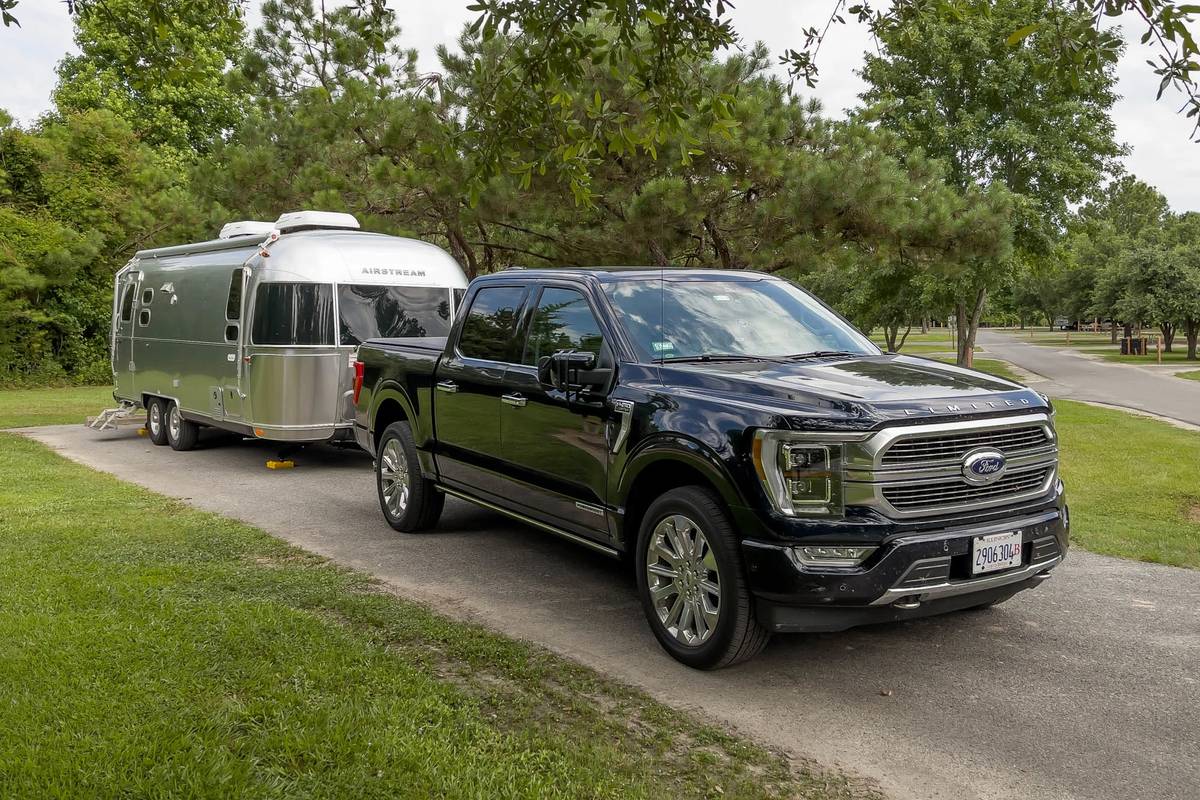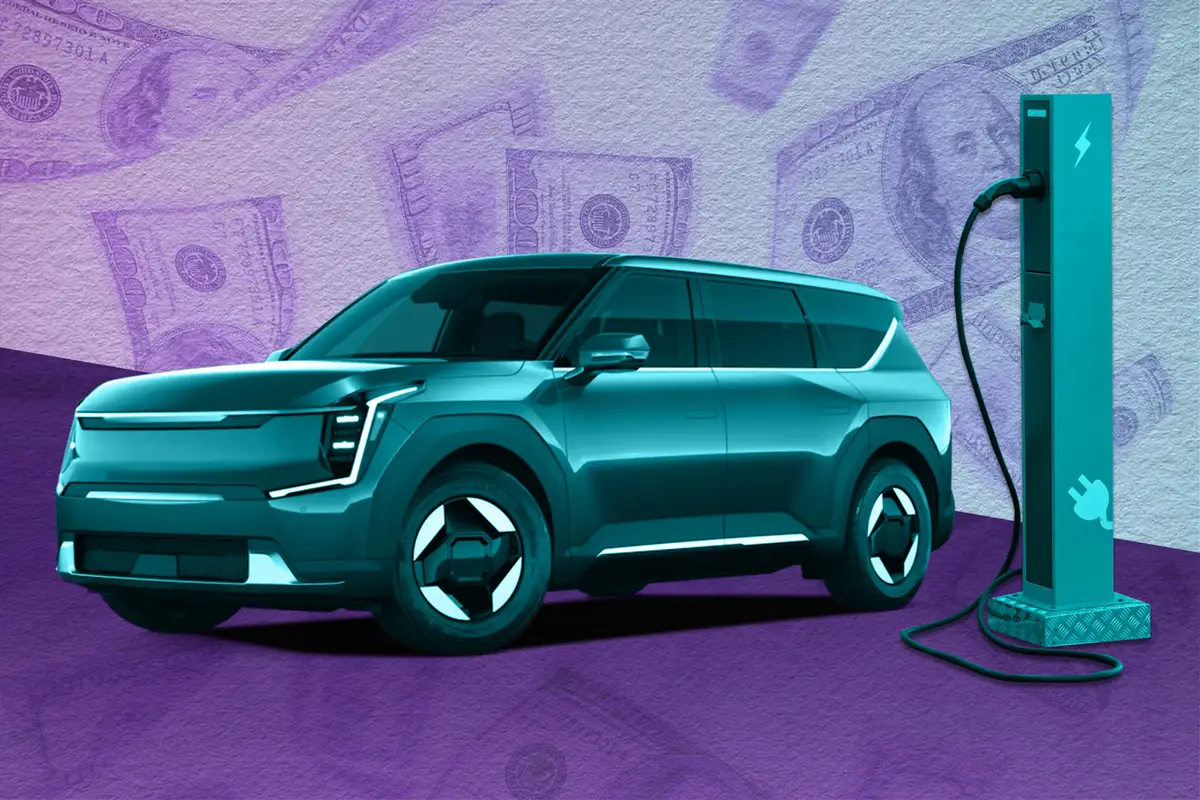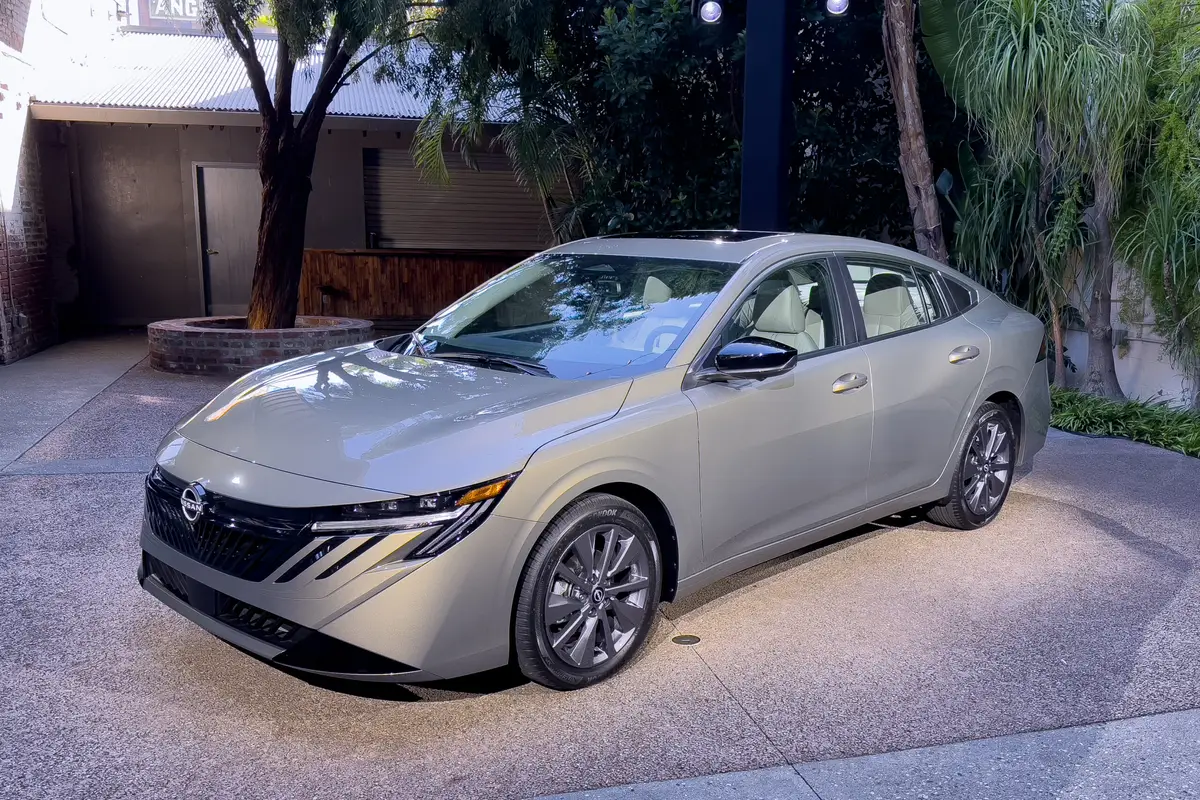After 23,000 Miles, Has the 2021 Ford F-150 Hybrid’s MPG Improved?


Cars.com’s Best of 2021 winner, the Ford F-150 Limited hybrid, has taken on a variety of demands since we purchased it almost a year and a half ago: It’s tackled road trips, towed trailers and served as a generator for off-the-grid camping. Despite these competencies, the F-150 hasn’t delivered on all of its promises, as it continues to fall short in the fuel economy department. Since our last ownership update, we’ve driven approximately 4,170 miles for a total of over 23,000 miles on the odometer. The mileage itself isn’t the notable milestone, however; the F-150’s recent mpg achievement is what warrants attention.
Related: What It’s Like to Live With the 2021 Ford F-150 for a Year
In our last update in April, we were averaging a calculated 17.7 mpg, significantly lower than the F-150’s EPA-rated 24 mpg combined. After several months of clocking inferior mileage numbers, we finally exceeded the pickup’s estimated fuel economy in our recent testing:
“We surpassed our truck’s EPA-estimated combined fuel economy rating for the first time after owning it for more than a year and a half,” said Senior Road Test Editor, Mike Hanley. “Our truck is rated 24 mpg combined, and after a 133-mile trip, the truck’s trip computer indicated a 26.6 mpg fuel economy average. We added 5.2 gallons of gas at the end of the drive for a calculated fuel economy of 25.5 mpg. The 26.6 mpg trip-computer average was more than 4 mpg higher than our next-best 22.4 mpg reading, but the near-ideal driving conditions we experienced — a mix of flat suburban streets, rural roads and highways, where speeds ranged from 25 to 65 mph — likely contributed to the truck’s efficient performance.”
How Does Towing Affect MPG?

Optimizing the F-150’s fuel efficiency isn’t our primary goal, however. Instead, we aim to put the F-150 to work in the same way a typical owner would, which includes towing. When burdened with the load of a trailer, the F-150 resorts to its old ways:
“The most recent thing we’ve towed with our long-term F-150 hybrid was an Airstream Flying Cloud 23FB camper trailer, which weighed nearly 6,000 pounds,” Hanley noted. “As you might expect, towing a boxy, heavy trailer significantly affected our truck’s fuel economy, dropping it into the 12-13 mpg range.”
Indeed, towing and hauling can significantly reduce mpg, according to the EPA, but only a fraction of our total trips have involved trailering. There are many other factors that can cause fuel economy to take a hit, including high-speed driving and aerodynamic drag, hilly or off-road routes, and even running the air conditioning at full blast can decrease mpg by 5%-25%.
A History of Mediocre Fuel Economy

Since our last update, we’ve added almost 183 gallons of premium gas, with an average price per gallon of $5.76. The average calculated mpg over the course of 4,170 miles was 16.74 mpg, with the top three most fuel-efficient trips coming in at 25.5, 20.7 and 19.9.
Even though recording 25.5 mpg is a marked achievement, it’s proven to be an anomaly for our F-150, which routinely fails to meet EPA estimates. The mediocre numbers we observed over the course of owning the pickup challenges the notion that a hybrid vehicle will return better fuel economy than its gas-powered counterpart.
While a vehicle’s mpg rating can be a good starting point to narrow down the most fuel-efficient cars, shoppers shouldn’t solely rely on a vehicle’s EPA rating to predict fuel economy. Instead, it’s best to consider how you’ll use the vehicle on a daily basis and understand how you can optimize any car’s fuel efficiency.
We’ll continue to monitor the F-150’s fuel economy to see if it can replicate the improved mpg results in our recent test.
More From Cars.com:
- With 7,000 Miles on Our 2021 Ford F-150 Hybrid, What Do We Think?
- We Charged a Ford Mustang Mach-E With an F-150
- Our 2021 Ford F-150’s Active Air Dam Disappeared, as Did $1,110 to Fix It
- Here’s Everything We’ve Towed With Our 2021 Ford F-150 Hybrid
- Life With the Ford F-150: What Do Owners Really Think?
Related Video:
Cars.com’s Editorial department is your source for automotive news and reviews. In line with Cars.com’s long-standing ethics policy, editors and reviewers don’t accept gifts or free trips from automakers. The Editorial department is independent of Cars.com’s advertising, sales and sponsored content departments.

Former News Editor Jane Ulitskaya joined the Cars.com team in 2021, and her areas of focus included researching and reporting on vehicle pricing, inventory and auto finance trends.
Featured stories



